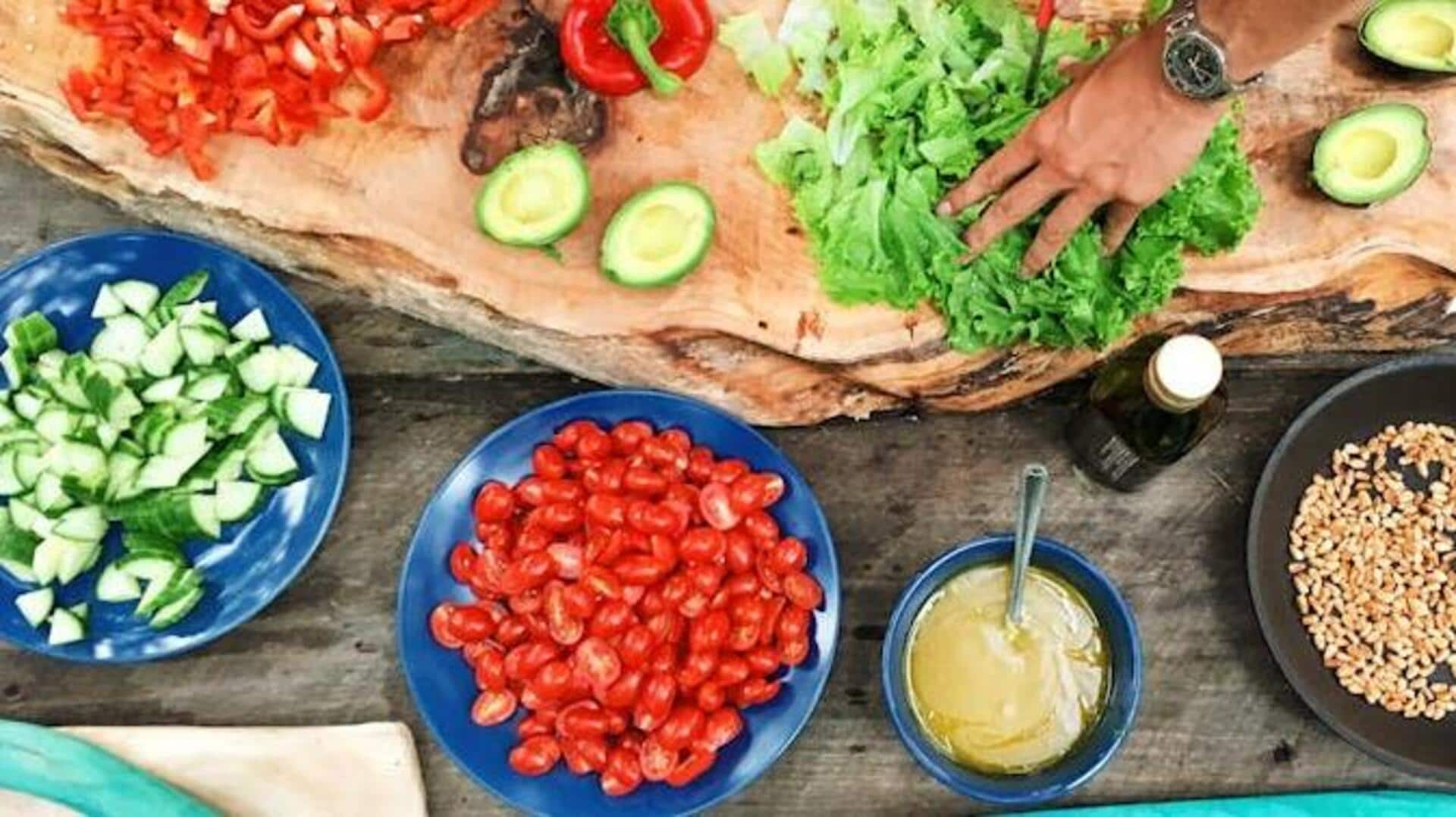
Improv cooking classes enhance emotional intelligence. Here's how
What's the story
Improv cooking classes is a hot new trend serving up life skills with a side of emotional intelligence Forget the rigid recipes and monotonous techniques of traditional cooking classes. The hottest trend in culinary education is all about embracing your inner kitchen rebel. Improv cooking classes teach you to trust your instincts, fostering self-discovery and a healthy serving of emotional intelligence.
Creativity
Boosting creativity and innovation
There are no set recipes or rules to follow in improvisational cooking classes. This freedom to create without boundaries allows people to explore different flavors and ingredients. This approach nurtures a sense of creativity that extends beyond the kitchen. Making quick decisions about ingredient pairings or cooking techniques trains people to think outside the box, ultimately improving their problem-solving abilities.
Socialization
Enhancing social skills
The act of cooking together in an improvisational setting fosters social connection like few other activities can. Participants are required to engage in effective communication, idea sharing, and collaboration to successfully create a dish. This dynamic environment enhances verbal communication abilities, while also fostering the vital emotional intelligence skills of active listening and adaptability to others' suggestions.
Flexibility
Developing adaptability
One of the biggest takeaways from improvisational cooking is learning how to roll with the punches. Whether it's missing ingredients or a dish that's cooking too quickly or slowly, you learn to adjust on the spot and not sweat the small stuff. That's a life lesson right there! If plan A doesn't work, there are 25 more alphabets.
Awareness
Improving self-awareness
Improvisational cooking is a meditative practice that cultivates mindfulness by engaging all your senses - taste, smell, touch - and, in turn, helps you become more self-aware. By paying attention to what you like and don't like in the kitchen, you start understanding your emotions and reactions in different scenarios outside the kitchen as well.
Decision-making
Strengthening decision-making skills
In improv cooking classes, you make split-second decisions about ingredients, how much seasoning to use, and how long to cook things. This trains your brain to make faster decisions by forcing you to quickly assess your options and trust your judgment. You'll not only make better choices in the kitchen but also feel more confident in your everyday decisions, ultimately improving your decision-making skills.